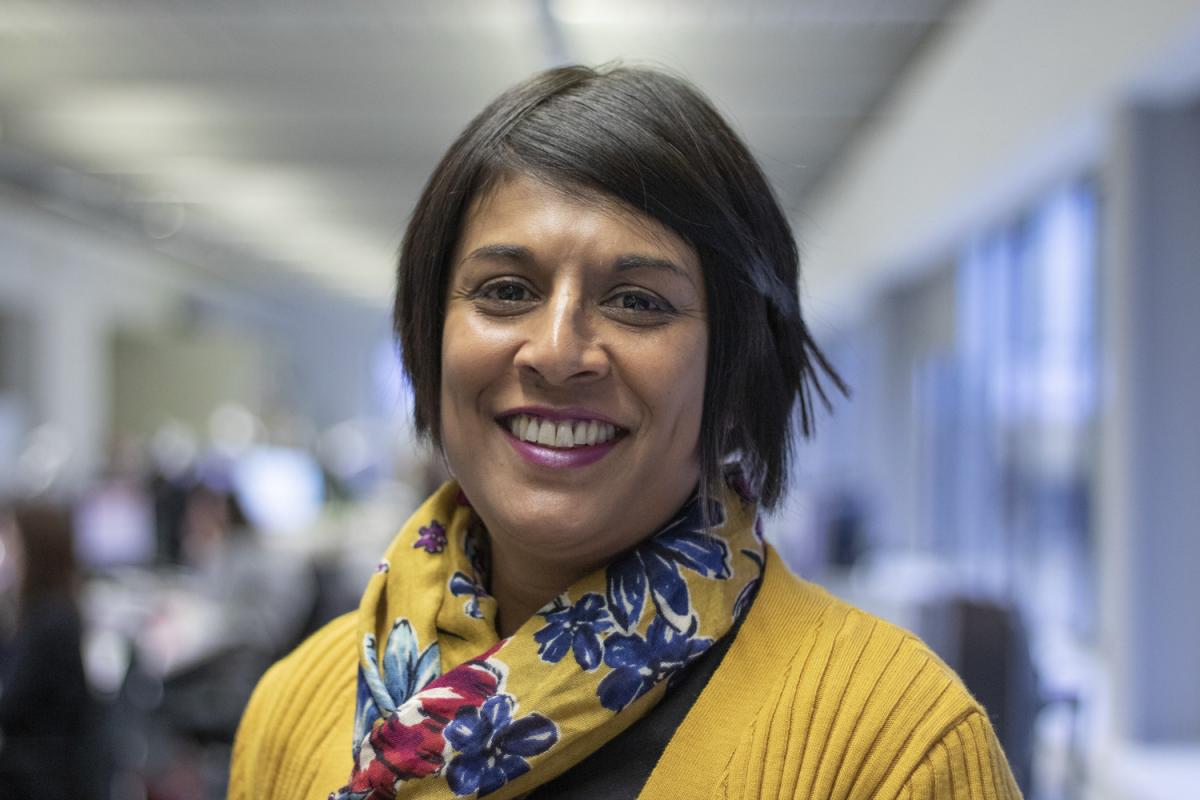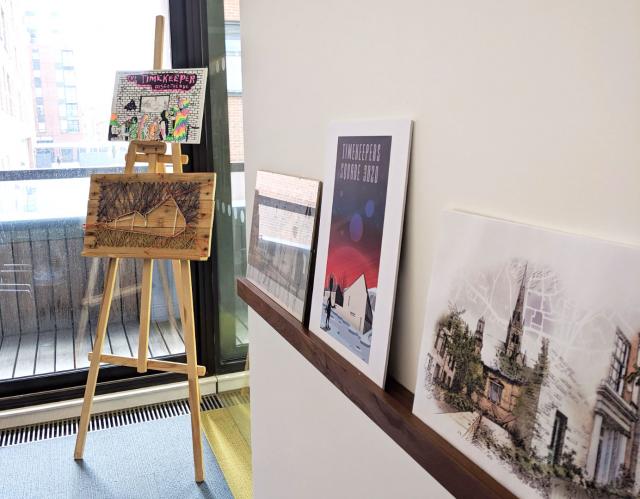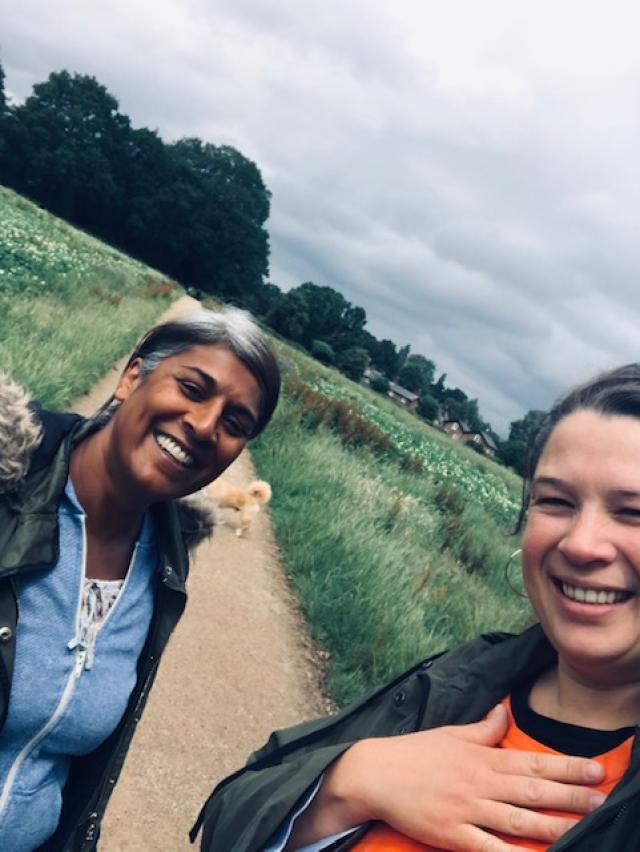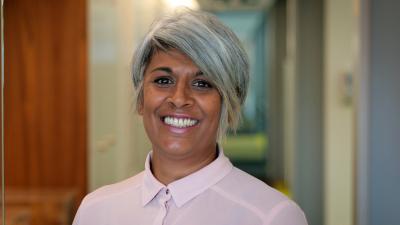To mark Mental Health Awareness Week, for our latest 'Behind the B' we spoke to Associate Director and Mental Health First Aider, Chithra Marsh, about what it means to be a Mental Health First Aider (MHFA) and the steps we're taking to support mental health in the workplace.

Why did you become a Mental Health First Aider?
I am a carer for family members who have suffered with their mental health over a number of years and witnessed the direct impact that pressures within the workplace can have on a person's wellbeing and that of their families. As a result, I am a firm believer that supporting good mental health should be given the same level of consideration that we give our physical health and safety.
So, when Buttress began to discuss training staff as Mental Health First Aiders, I was one of the first to volunteer.
What does it mean to be a Mental Health First Aider?
Becoming a Mental Health First Aider involves completing a very intensive two-day training course which teaches people how to identify, understand and help someone who may be experiencing a mental health issue. This includes guidance on non-judgemental listening, asking open questions, assessing someone's needs, and knowing when to signpost them towards professional help.
For me, completing the training has allowed me to build my skills when it came to dealing with sensitive issues and has given me the confidence to really help people who are reaching out. Importantly, it also tackled the stigma around mental health and how we, as an organisation, can help break down negative perceptions within the workplace.


As well as training staff as MHFAs what else is Buttress doing to support staff's mental health?
As a practice, we recognise that our people are our most important asset and that we have a responsibility to create a working environment that supports individuals and allows them to feel their best when they come to work. We encourage a culture of openness and understanding and have developed a suite of measures that seek to put employees' health and wellbeing at the fore.
We have a dedicated wellbeing team, made from members of our studio. This group has developed a 'B:Well' programme, through which we run campaigns, deliver a rolling programme of activities, and provide access to resources that support physical and mental health. In the past, we have provided lunchtime yoga sessions, art and social activities and supported charities with fundraising.
We have a company-wide enrolment with health insurance provider, Westfield Health, and also signpost people to organisations such as Able Futures, which are specifically designed to help support mental health in the workplace.
A few members of our team are enthusiastic ambassadors for the Architects Benevolent Society and we are also supporters of the Architects Mental Health Wellbeing Forum, which offers toolkits and resources to help improve mental health within practices and promote good health and wellbeing within the architectural community as a whole.
Whilst we have made good progress over the last couple of years we are always looking for ways to improve on our support. Recently, we sent out a wellbeing survey to the entire studio asking staff what we're doing well, what could be improved or what might be missing. The feedback is currently being used to help shape our forthcoming plans to ensure that everything we do is tailored to the collective needs of our staff.

How has Buttress supported employees' mental health during the COVID-19 pandemic?
As soon as we entered lockdown, we worked hard to raise awareness about the different resources available to members of the studio and the things employees could do to support themselves and their colleagues, such as speaking to a Mental Health First Aider or someone they trust.
We also recognised that although tools such as Teams and Zoom have been important in allowing us to connect and continue to operate as a business, they cannot replicate the social interaction many of us enjoy in the office. Where appropriate, we encouraged team members to meet for socially distanced walks, allowing them to get out, get some exercise, and connect with their colleagues.
Looking after new and younger members of staff has also been high on the agenda. Rather than deferring these responsibilities to the Directors or our B:Well team, fellow staff members have taken a proactive approach to support each other.
What's next for Buttress?
The past year has been challenging for many of us. It's highlighted how important it is to strike a balance between work and personal time and we've learnt a lot about the role routine and environment play on our wellbeing. As we prepare to return to the studio, we'll be taking some of the lessons we've learnt to create a strategy that draws directly on employees' experiences of the past year.
We are currently in the process of gathering feedback from employees on what they've enjoyed about working from home and what they've found challenging. This feedback will create a framework for decisions on what working practices we adopt as we move forward, and what more we can do to create a culture that respects and responds to individuals' needs .
None of us know how this last year has really affected us as individuals and it might be a while before the true effects will manifest. As a practice we recognise that we need to be vigilant to this and support accordingly.
Chithra Marsh
Chithra is a director at Buttress with more than 20 years of experience in commercial practice in both the public and private sectors.
